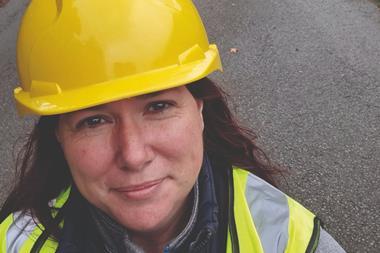How many bosses want to talk about diversity during a financial crisis? Probably not many, and who can blame them when many will be spending most of their day pleading with banks, haggling with clients and shoring up depleted balance sheets.

Property industry veteran Liz Peace does, though. Indeed, she argues that the devastation to economies caused by the Covid-19 pandemic has made the issue of company culture more relevant than ever.
“Companies that already have a good flexible working policy will be able to adapt very quickly,” Peace tells Property Week less than a month into her new role as chair of Real Estate Balance, an association founded by women looking to address gender inequality in the industry.
The former British Property Federation (BPF) chief executive has the unenviable task of asking members to renew their annual subscription to the lobby group at a time when some of them don’t even know if they will survive the next few months.
“We know it’s exceedingly difficult and we are yet another demand. We try to say that what we are doing is so important that you really can’t afford to let it slip.”
For 13 years as head of the BPF Peace argued the industry’s corner while trying to modernise some of its old-fashioned ways – acting as “good cop, bad cop”, as she puts it. The experience left Peace with a mixed view of how the industry will tackle Covid-19.
“There are a lot of deep thinkers who seriously consider what the industry is, where it should be going and how it needs to change,” she says.
“And there is the other end of the industry, which is massively blasé and gung-ho, saying ‘it’ll all get back to normal and we’ll be back to making stellar returns in due course’. The industry is very bad at blending the two.”
Peace believes a key lesson companies will take away from the Covid-19 pandemic is the importance of flexibility.
We try to say to members that what we are doing is so important you can’t let it slip.
“Sending staff on furlough is a bit like sending women on maternity leave for nine months. Will they have a job to come back to? How do they keep in touch or keep up to speed with what’s going on?”
While Covid-19 currently looms large over everything, Peace remains focused on Real Estate Balance’s long-term objectives, including its original goal of getting a cadre of chief executives on side and drawing up a tool kit to give property bosses practical help in areas such as recruitment and flexible working. So far it has proven to be a tough sell.
“Even if you have a CEO who says ‘this is what I want to do’, the organisation has to have the culture embedded right down to the lowest level to make it happen,” says Peace. “How do you get it below the senior leadership to the people who actually do it on the ground?”
Then there is the challenge of how to encourage people from a wider range of backgrounds into the industry in the first place. Employers need to look beyond the usual candidates, she says.
“You don’t need an estate management degree to be a good property manager, so you could start taking people in just with A-levels or even less.”
Historically, a key stumbling block has been the perception the industry is too ‘blokey’. Does she think this is still the case?
“It depends who you ask. At Mipim, you see the cluster of agents outside Caffe Roma: a sea of white men in grey or blue suits clutching bottles of warm beer. You don’t see many women, do you? I wouldn’t stand there; I couldn’t think of a less hospitable place to spend an evening.”
That said, Peace believes the real estate sector is no worse than other industries. In fact, she thinks many property companies are viewed too negatively.
“I spent 13 years at the BPF trying to make the industry respectable and get people to appreciate what it did for society,” she says. “People often used to say that all the efforts were undermined by one or two people who behaved badly.
“My answer was that every profession has tough nuts or, dare I say it, downright crooks. You’ll always have bad eggs in every industry and the really important thing is to focus on what the good guys are doing.”
In recent weeks, retail landlords, in particular, have faced widespread scrutiny for clashes with occupiers over how much rent should be paid during lockdown. This standoff between retailers and landlords, who have been portrayed as the bad guys in this particular clash, doesn’t surprise Peace.
“All my time at the BPF we had a battle with retailers,” she says. “It was retailers who were driving the government to ban upward-only rent reviews. I used to say to the government, ‘just have a look how this retailer is behaving and that retailer is behaving’.”
In the current crisis, concerns about such behaviour go well beyond the typical tit-for-tat between landlords and retailers. How the property sector acts now will be remembered long after the Covid-19 crisis abates.
Peace will be among those making sure the industry does not revert to bad habits and that instead the good guys – and girls – win the day.
































1 Readers' comment